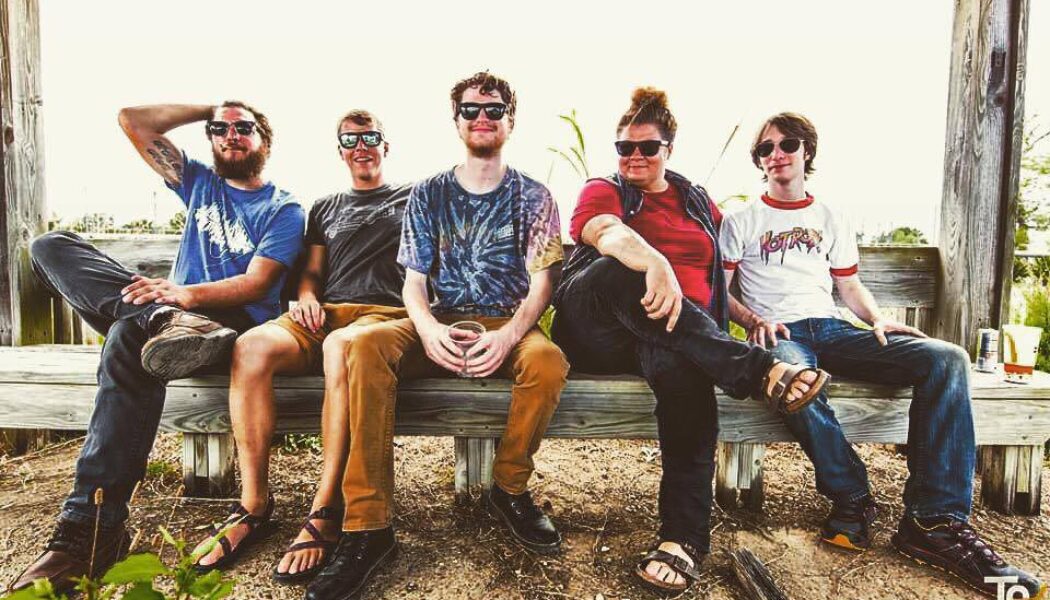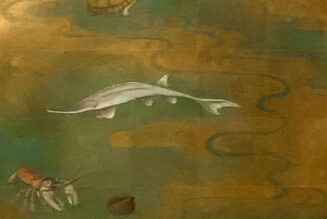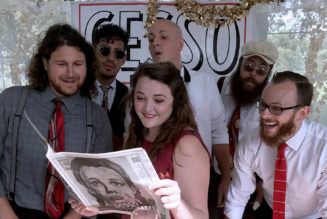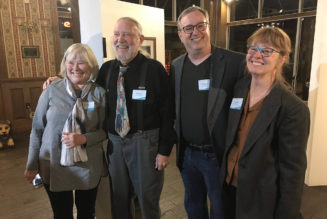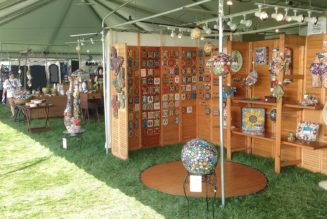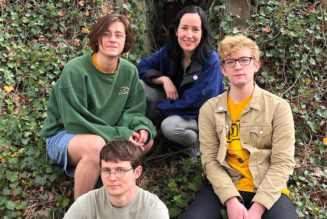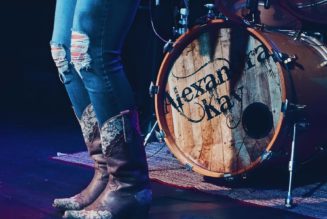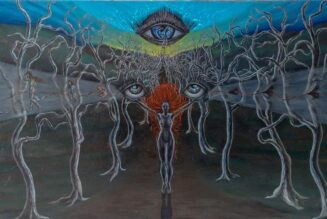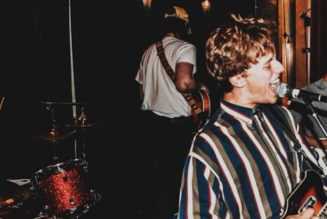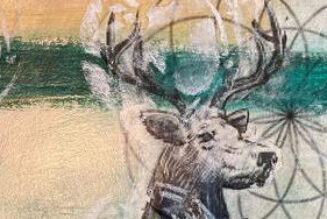by Gesso Magazine Columnist, Kim Vrooman
It was March 5th. A group of fun-loving volunteers from the nonprofit Tapestry of Community Offerings met in the upper room of the bar and grill Seven in Belleville, Illinois. They were planning a benefit full of art and music. Five bands would be donating their time to play this weekend-long fest. Volunteers were putting together raffle baskets and day of show logistical plans. Little did organizers know that just a few days later all of the plans they were putting in place for the 17th annual Herstory Weekend would be stalled- brought to a complete halt, because of this thing called COVID-19.
As the fundraiser drew closer the organizers thought it best to warn all participating musicians that the gig was not likely to happen. I was one of those musicians. It was a heavy day. I felt like I was living the lyrics to that old song by Don McLean. In some ways this day felt like the day the music died.
As time passed, we started to realize that this wasn’t going to be just one canceled gig, but a change in lifestyle-a shift at the very core of our lives. And for artists and musicians who count on daily, weekly, and monthly gigs to sustain not only their spirits but also their bank accounts, this shift was unexpected and consequential.
Now nearly half of a year has passed and seasoned musicians are challenged to find a way forward in order to preserve their art and even their lives. I reached out to a few local musicians from Bottoms Up Blues Gang, One Way Traffic, Old Salt Union as well as harmonica player Tip Belz, a part time ringleader to an impressive revolving cast of musicians in the region who get together to play local clubs. I wanted to better understand the influence that COVID-19 has made on their artform and ambition. What I discovered was impactful. This pandemic has taken a toll on the arts community, and most importantly on the individual lives of those who make up that community. Still, through interviewing these friends in service, I can feel the magic of the human soul pressing forward in order to adjust to the “new normal” and finding meaningful ways to connect with one another despite this uncertain time.
The arts have taken a beating in our community over the past six months. I talked with Leah Osborne from One Way Traffic about how this pandemic has affected her and her band’s ability to play for others. She explains, “We’ve taken a huge hit this year as a band. 2019 was our introductory year. Our name was starting to be known and we were starting to play bigger venues and big festivals.” She notes how the pandemic has shifted the trajectory of the band’s future, “We lost out on about 6 months of traveling and playing for folks across the country. To me that’s the biggest effect.”
These aren’t just hobby artists, such as myself, playing the occasional weekend for fun and therapy. These folks are full-time musicians playing anywhere from 12 to 15 gigs per month most months and they count on income from gigs to sustain them financially.
Jesse Farrar, from the band Old Salt Union explains, “It’s no longer as easy as showing up to a bar in a town where people have never heard of you and then hoping they latch on to your performance. The pandemic has forced people to actively seek out the music they want to see, as there aren’t a whole lot of options to do so.”
Speaking also with Kari Liston from Bottoms Up Blues Gang on the same topic, Liston admits, “ I have not played in public since March 7, 2020. At first, venues were closed, so there wasn’t an option. Now, some places are open but I don’t feel comfortable playing. She continues, “It’s annihilated my desire to play with others. I don’t feel safe and I don’t feel it’s worth the risk.”
Over 215,000 people have died from, and nearly 8 million have been infected with COVID-19 in the United States at the time of the publication of this article. This is a reality for any musician who is considering face to face gigs at this time. (numbers to be revised at time of publication…)
Unfortunately before the pandemic, solid acts full of talent were underpaid by most venues in the region. COVID-19 has only compounded the issue and as Liston puts it, “I feel my life is worth more than $100 or so for 4 hours.”
While many of these artists count on these live gigs for livelihood, the lack of opportunity is also impacting them in a spiritual way and getting to the core mission of their art. Farrar notes, “It hasn’t been a very inspiring time to write. I think from the outside in – it seems like the perfect time to write and reflect, but in reality it’s been a very mundane and drab time creatively and literally.” Farrar believes from personal experience that when all of this is in the rear-view mirror it will be easier to write about this time in our shared history.
Bottom Up Blues Gang’s Liston feels similarly uninspired, “I’ve basically stopped playing at all, even practicing.”
So does One Way Traffic’s Osborne, “Personally, I’ve had a really bad case of writer’s block. I think it’s due to not feeling grounded. I’m stressed, anxious, and full of questions not being answered.”
And Old Salt Union’s Farrar agrees, “When we’re not playing as much – the lack of confidence, at least on my end, is very prevalent. When you’re playing every night, you fall into a muscle memory blanket. So a lot of second guessing your pitch and playing abilities these days.”
The pandemic has struck all of us in some way-some of us in much more dire ways. Still, there can be positive side effects caused by the pandemic on the lives of artists.
Osborne shares, “As a band our desire is still all there but I think we’ve grown so used to this “new way” of living that we have almost naturally slowed down. Which in our case was good. This gave us a chance to write our second album. We haven’t lost the desire in any way, just shifted things I suppose.”
She continues, “We didn’t see each other for about two months. But practice started to happen again and so did all the songs. This time gave us, in particular bandmate Sam Avery, the chance to hone in on songwriting.”
Osborne shares that we will hear all the new songs soon enough. One Way Traffic has recently been in the studio and Osborne stresses how the band has grown closer having gone through this together. She notes, “It makes me feel really confident knowing we’ve made it through what seems to be the toughest part of all this. I find comfort in that. We are a solid family. That goes a long way.”
Liston of Bottoms Up Blues Gang does see some optimism, but of a little different flavor. She admits, “I have a greater respect and gratitude for my art.”
Farrar is grateful the band has been able to play a couple of live shows recently. He says he didn’t realize how much playing live means to him. “Before it was just “something we did” and now I realize it’s “something I need.”
We are all learning to navigate this new normal. Most of the artists I interviewed have played their share of virtual festivals this summer finding innovative ways to connect. And most have started to shift back to playing a few live shows here and there in parking lots, blocked off streets, and drive in movie theaters, but the way they play live has changed. Practicing social distancing as a band and looking out to an audience who is doing the same, the way band members bond with one another and their audiences has shifted. And winter is coming.
How can we support our favorite artists during this uncertain time? Most acts have music for sale and some are live streaming concerts. Most take payment through Venmo, PayPal, and/or Cash App. Consider offering to host an online watch party in their honor and collect donations. Visit an artist’s/band’s individual website to learn more. Keep up with bands on social media, and check in with Gesso Magazine and KDHX Events Calendar to find ways to support these artists. You can also find organizations who help musicians and venues navigate. Billboard.com hosts a state by state guide sharing resources available to artists.
What does the future of entertainment hold? The answers are not easy to come by, but in our voices and in the hum of our instruments there is humanity. And be it by Zoom or in a parking lot in Bellevegas, there is a spiritual connection between artists and their art, and artists and their patrons. This connection will endure.
Local harmonica player, Tip Belz, puts it best when he says, “As an artist, I have gained a new and improved appreciation for how having other people in your life makes you a better artist / person all around. People need people. Art is meant to be shared and is meaningless without people.”
So those volunteers who were meeting at Seven in Belleville back in March of 2020 will now be meeting online to plan the return of Herstory Weekend for 2021. And it might look and sound different. But one truth remains: art brings people together and helps us be better human beings. We must pick up the instruments and continue to play and sing like our lives depend on it. Because they do.
Photo credits:
Old Salt Union: Photo | Sekondtry
One Way Traffic: Tyler Gustafson
Bottoms Up Blues Gang: Cory Woodruff
Tip Belz: Michelle Szwedo
Kim Vrooman is a seasoned educator, communications professional, researcher, advocate, nonprofit, and for-profit business founder, entertainer, and community builder. In the early 2000s she was a guest columnist in St. Louis Sound Magazine and is now creating her columns for Gesso Magazine. Kim invites the readers to reach out to her with arts news and kid-centric events, and she will be delighted to consider these items for the calendar and / or a feature. You may reach her at kimvrooman@gmail.com
